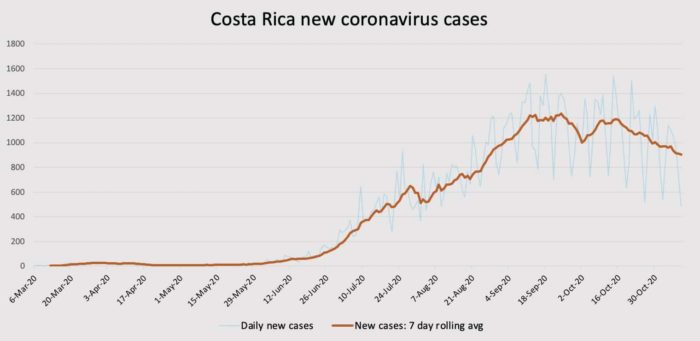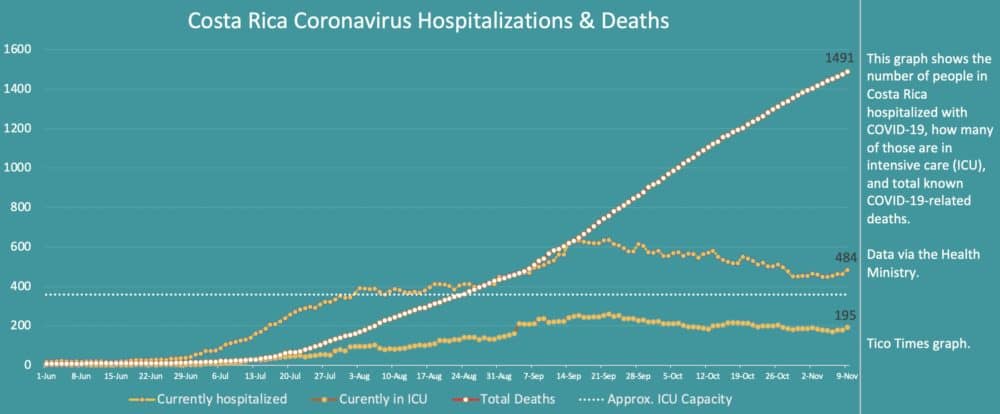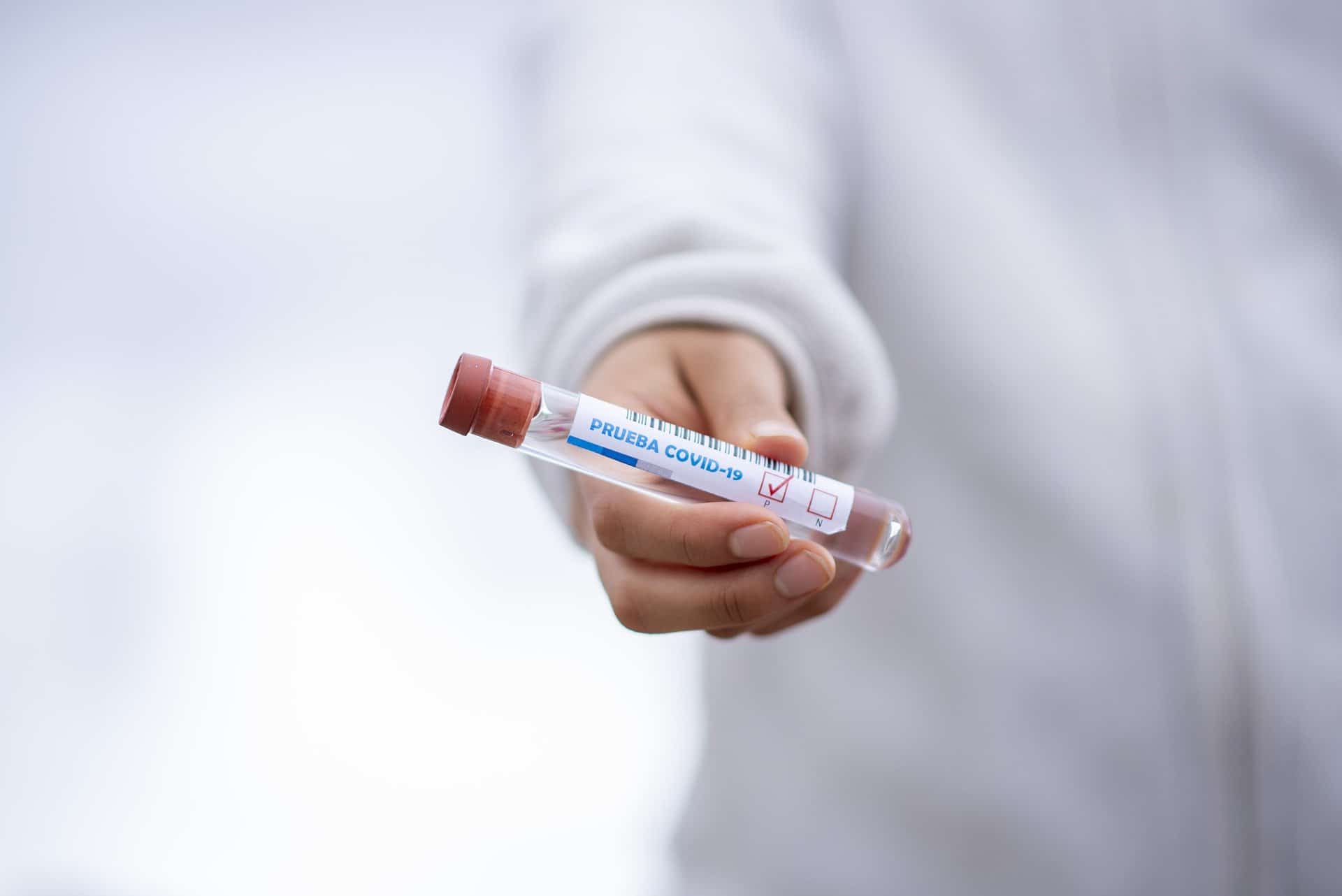Eight months after the coronavirus pandemic arrived in Costa Rica, we take a look at how the country is doing:
Hospital capacity holding steady
Costa Rica has confirmed 117,587 total coronavirus cases. After daily new cases peaked in late September, the country is on a notable downward trend:

According to the University of Costa Rica, the country’s estimated R value is less than 1.0. This measurement of the virus’s reproduction number suggests the outbreak is slowing in Costa Rica.
Costa Rica has not experienced a saturation of its healthcare services. About 50% of Costa Rica’s 359 ICU beds for coronavirus patients are occupied. This is also down since a late-September peak.
The Health Ministry last week suggested that cases in early September were higher than identified by testing, attributing to the peak in hospitalizations that month.

COVID-19 is leading cause of death
COVID-19 is expected to be Costa Rica’s leading cause of death in 2020, according to Health Minister Daniel Salas.
In 2019, acute myocardial infarctions (heart attacks) were the country’s leading cause of death (1,322 people). Across eight months in 2020, Costa Rica has announced nearly 1,500 COVID-19-related deaths.
What are the ongoing restrictions?
Costa Rica has lifted the majority of its coronavirus restrictions. However, some measures still apply, including the following:
- Masks must be worn indoors in nearly all situations.
- There is a nationwide nighttime driving ban (10 p.m. to 5 a.m. on weeknights, and 9 p.m to 5 a.m. on the weekend).
- There is a weekday restriction based on a vehicle’s license plate (with many exceptions). Click here for details.
- With some exceptions, businesses must close at 10 p.m. on weeknights and 9 p.m. on weekends.
- Tourists cannot enter the country via land borders.
- Capacity is limited at most establishments. Some mass-gathering events are suspended.
What about COVID treatments?
Costa Rica continues studying antibody-rich equine serum as a possible treatment for patients with COVID-19.
“To date, there is nothing new or different to report,” the Costa Rica Social Security System (CCSS) recently told AMPrensa. “It is a study in process that is governed by technical and scientific rigor, for which the information is provided when there is progress that can be published.”
The CCSS hopes antibody infusions will help coronavirus patients recover faster, helping preserve hospital capacity.
What about a COVID vaccine?
Pfizer and BioNTech this week announced that early data indicates their coronavirus vaccine may be 90% effective. According to The New York Times, Pfizer plans to ask the Food and Drug Administration for emergency authorization of the two-dose vaccine later this month.
Costa Rica has already signed an agreement for 3 million doses (enough for 1.5 million people) of this eventual vaccine.
In addition, Costa Rica is part of the COVAX Facility, an effort supported by the World Health Organization to distribute eventual vaccines worldwide. COVAX promises “vaccines delivered as soon as they are available” and would provide doses to cover at least 20% of Costa Rica’s population (about 1 million people).
Where can I get tested?
Call 1322 if you believe you may have COVID-19. Operators will provide details about the process to get tested through the public-health system. English-speaking operators are available. You can also contact your local community health clinic (EBAIS).
Many private labs and hospitals also offer on-demand PCR coronavirus testing for a fee. These include: Laboratorios Echandi, Hospital La Católica, Hospital Cima, Laboratorios LABIN, Hospital Clínica Bíblica, Laboratorio Páez, Laboratorios San José and Hospital Metropolitano.
Some private labs can also test for coronavirus antibodies. These include: Laboratorios Echandi, Hospital Clínica Bíblica, Hospital la Católica, Hospital Cima and Laboratorio Labin.






